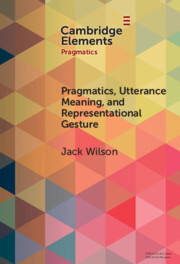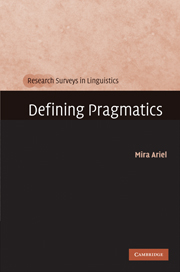Pragmatic Inference
The concept of inference is foundational to the study of pragmatics; however, the way it is theoretically conceptualised and methodologically operationalised is far from uniform. This Element investigates the role that inference plays in pragmatic models of communication, bringing together a range of scholarship that characterises inference in different ways for different purposes. It addresses the nature of 'faulty inferences', promoting the study of misunderstandings as crucial for understanding inferential processes, and looking at sociopragmatic issues such as the role of commitment, accountability and deniability of inferences in interpersonal communication. This Element highlights that the question of where the locus of meaning lies is not only relevant to pragmatic theory but is also of paramount importance for understanding and managing real-life interpersonal communication conflict.
Product details
March 2024Hardback
9781009500838
82 pages
235 × 159 × 11 mm
0.27kg
Not yet published - available from February 2025
Table of Contents
- 1. Pragmatic inference: a concept with many faces
- 2. 'Faulty inferences': speaker intentions, indeterminate meanings, and misunderstandings
- 3. Commitment and accountability
- 4. Inference strength and deniability
- 5. Concluding remarks on the study of pragmatic inference
- References.







